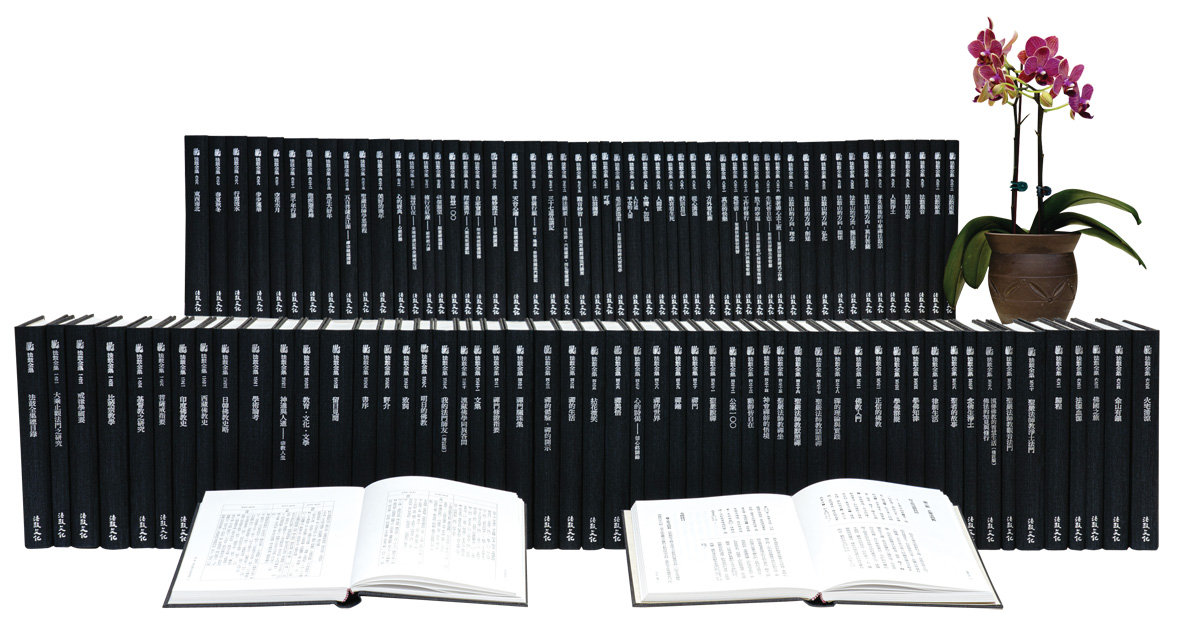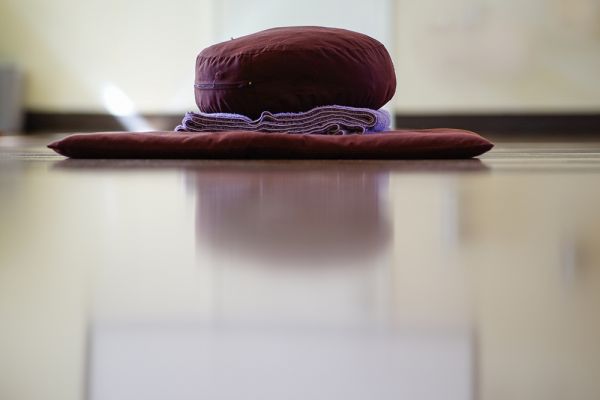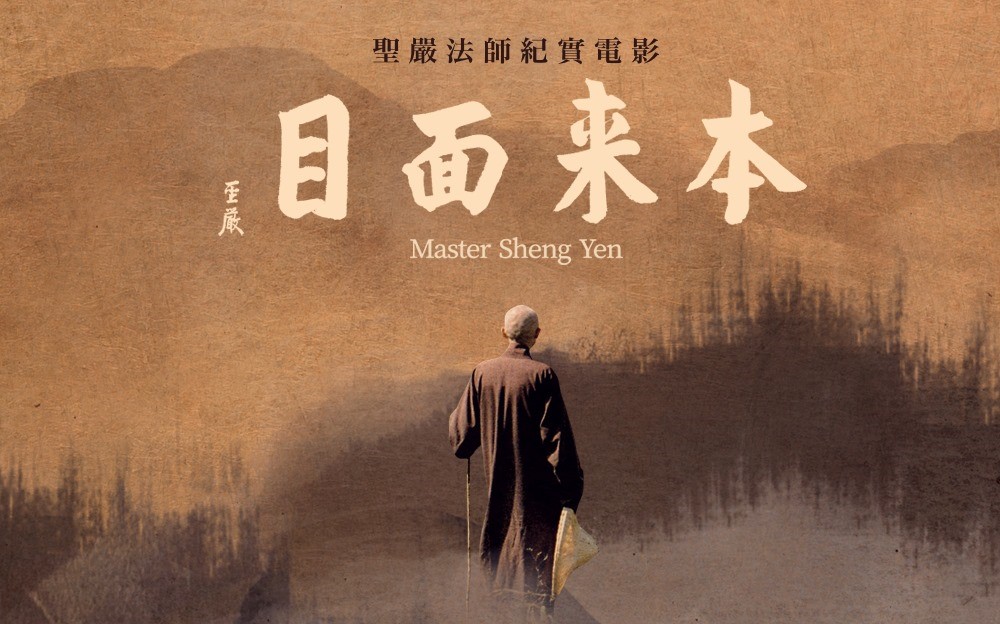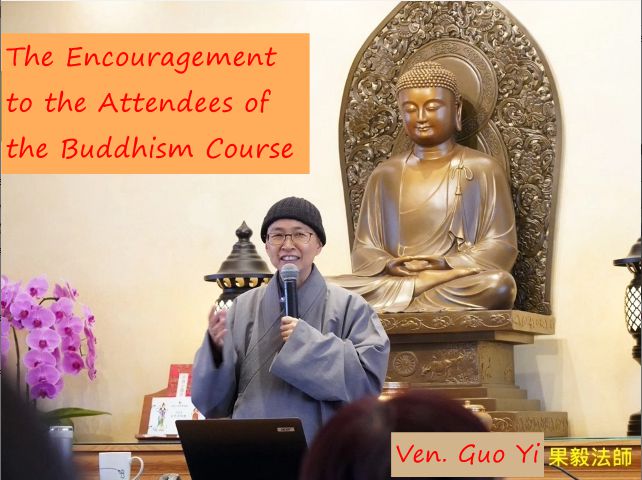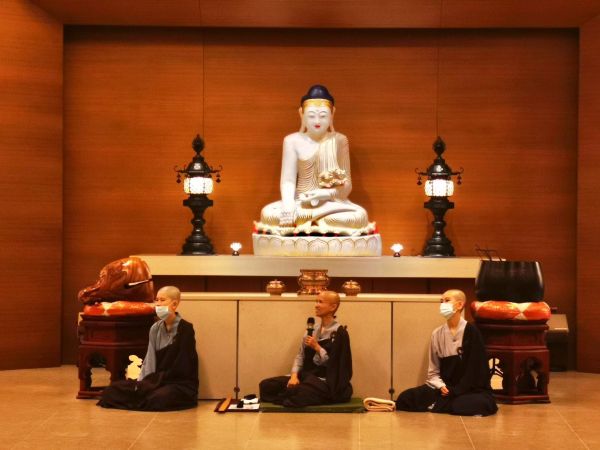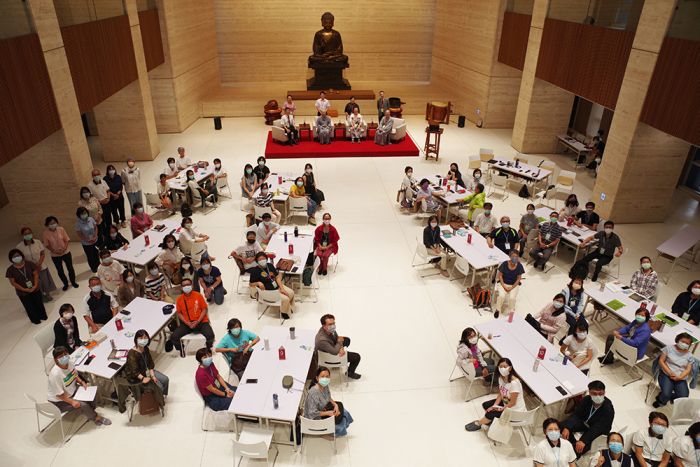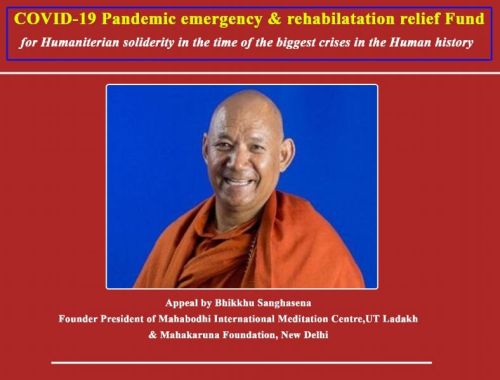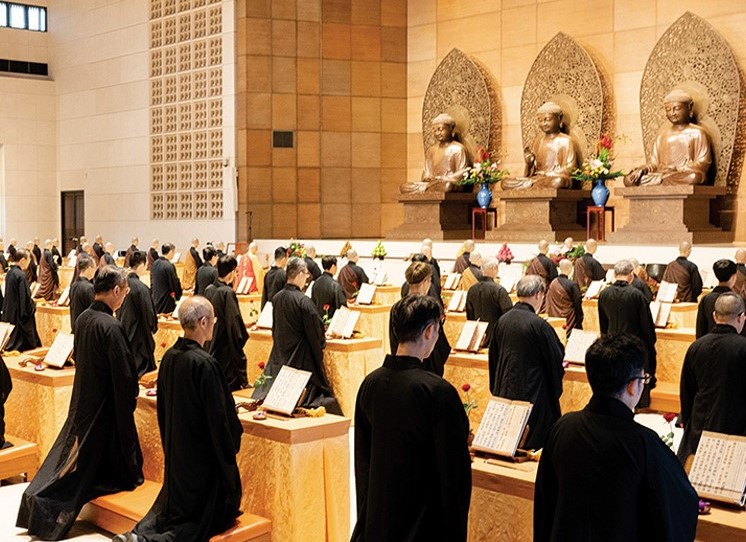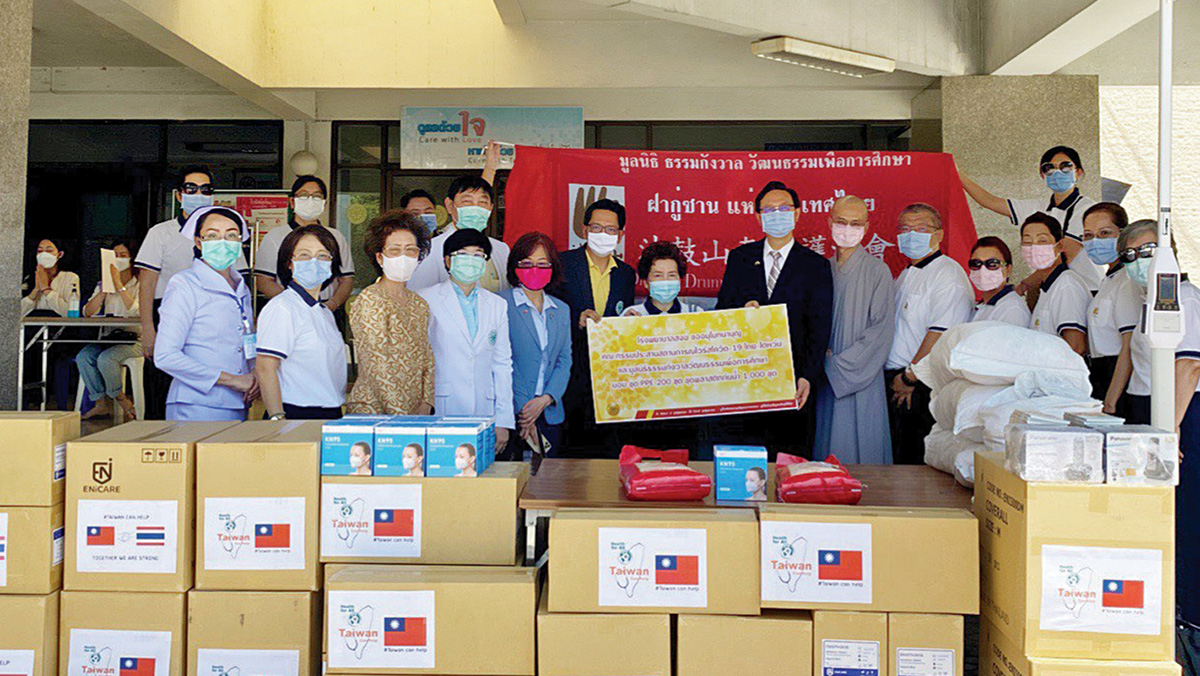News
The Complete Works of Master Sheng Yen: The 2020 Memorial Edition
A comprehensive collection of Master Sheng Yen's Dharma talks, teachings, and thoughts, as a guide for seeking peace in daily life and learning Buddhist practice. In October, Dharma Drum Corporation published the 2020 memorial edition of The Complete Works of Master Sheng Yen. After undergoing additional proofreading and reorganization, this revised edition of the Complete Works, which embodies the essence of the Master's lifelong learning, has finally been released. Commemorating the 10th Anniversary of Master Sheng Yen's passing, this edition has a special significance both to Dharma Drum Mountain's monastic and lay practitioners, and to the development of contemporary Buddhist philosophy and culture. The publication of this new edition was prompted by the Master's instruction for the previous version to be re-edited, amended, and supplemented with related articles and sources, for the benefit and convenience of future readers and researchers....
Online Beginner's Meditation Workshop: Learning to Purify Our Mind
Dharma Drum Mountain San Francisco Bay Area Center held its first Online Beginner's Meditation Workshop. Starting from October 3, 2020, the workshop led by Ven. Chang Xing together with two experienced attendees will take place on the following four Saturday mornings, to guide the ten participants to learn Chan practice. Starting off by using the analogy of Blind Turtle Meeting the Yoke Adrift in the Saṃyukta Āgama as an example, the venerable reminded everyone that the precious human form is difficult to obtain and we have obtained it, and that the Buddha's teaching is hard to encounter and we have encountered it. He urged the participants to cherish the opportunity to learn Buddhist Chan practice and apply it to cleanse and purify their minds. He mentioned the three functions of Chan Practice: 1) to balance body and mind-keeping good health and calmness; 2) to have stable spirits-keeping emotions in even-keel while walking, standing, sitting, or lying down; 3) to cultivate wisdom and compassion-with continual practice of Chan, we can naturally face worldly matters with compassion and handle them with wisdom. As Master Sheng Yen said,“Kindness and compassion have no enemies, and wisdom engenders no afflictions.” Next, the venerable used Japanese Zen Master Nan-in's story of“emptying your cup”to explain the correct attitude of practicing Chan. He advised participants to first let go of attachment to their preconceived ideas by regarding the mind as an empty cup. He suggested practitioners put aside the methods of Chan practice they had learned elsewhere and instead focus on ones taught in the workshop. Afterward, they could always decide which method is most helpful for them. Chan Buddhist practice requires us to stay unaffected by how our body and mind react to the external circumstances, and simply apply the methods to calm our body and mind, thereby developing in wisdom and compassion, freeing ourselves of clinging and affliction. During the first lesson, the venerable taught the three basic sitting postures for Chan practice—loose sitting, half-lotus, and full-lotus—as well as four additional postures: Guan Yin Sitting, Burmese Sitting, Japanese Sitting, and Riding a Horse Sitting. He also showed participants how to feel whether their body is being tense or relaxed. Time was also allocated in class for everyone to practice these skills. Finally, he encouraged all to spend at least 15 minutes practicing meditation at home and looked forward to seeing all participants again for the next lesson scheduled on October 10. Text: Wang, Chu-Jun(王琡珺) Photos: Jean Li Translation: Hisao, Chen-An Editing: Chang, Chia-Cheng (張家誠); DDM Australian Editorial Team
The Premiere of Master Sheng Yen, a Charitable Film to Bring Peace to People's Minds
After more than two years of making, the documentary Master Sheng Yen premiered at Ambassador Theatres Taipei at 1:30 pm on August 30, 2020. DDM's abbot president Ven. Guo Huei, as well as two special guests Huang Yun Ling and Alan Ko, were invited to watch the film, along with over 700 other viewers. Produced by the Sheng Yen Education Foundation, the charitable film of Master Sheng Yen's story in sharing the Dharma shows how he strived to find a way out when encountering the seeming dead-ends, demonstrating his compassionate vows during hard times and his wisdom in challenging situations. The film is scheduled to be shown in more than 70 other rounds across Taiwan. After the premiere, Cai Qingyan and Yang Bei, chairman, and chief executive of Sheng Yen Education Foundation, who also served as executive producers for the film, expressed gratitude to film director Zhang Zhaowei, monastic and lay practitioners of the DDM, and the people who signed up for tickets. Also, coincidently, both Zhang and Cai agreed that the idea of letting go best represented their feedback for the film. Zhang said that watching the story of Master Sheng Yen's life inspired him to let go of his insistence of wanting to change society and the world by making documentaries, and also helped him overcome his crisis in work, enabling him to keep moving on with his career of making documentary films. Cai explained that it was because the Master never stopped improving himself and letting go of the sense of self-superiority that he was able to renovate Buddhism and establish Dharma Drum Mountain with an aim to uplift the character of humanity and build a pure land on earth. Master Sheng Yen tells a story of how an ordinary person could make extraordinary contributions. The film hopes to inspire the general public who are not familiar with the Master after viewing. The film draws on stories from Master Sheng Yen's autobiographies, chronicles, and interview videos. As Yang recalled what prompted her to make this film, she said that she had always felt apologetic for not being able to finish an autobiography for the Master as he expected. Therefore, after she first met Zhang in 2016, she immediately thought of making a documentary on the dignity of life and death, as an alternative way to fulfill his wish. As DDM abbot president Ven. Guo Huei said, this film again reminded him to remember his teacher's kindness and put his teachings into real practice. The Master might have encountered countless difficulties and setbacks in his life, but he never forgot to give of himself for the sake of the Dharma and sentient beings. As the modernization of Buddhism takes education and system as a fostering force, thus the Master often said,“The Dharma is so good, yet so few people know about it, and so many people misunderstand it.”For this reason, he also wrote the Orthodox Chinese Buddhism and promoted the Four Kinds of Environmentalism. Ven. Guo Huei expected that the film could not only be appreciated as art but also serve to inspire people about life. Sheng Yen Education Foundation believes that given the pandemic's global impact, people would be reflecting more on their lives. The film of Master Sheng Yen's life will prompt viewers to reflect deeper on their life, gain more insights, and attain greater peace of mind. Text: Zhang, Yao-Zhong (張曜鐘) Photos: Li, Dong-Yang (李東陽) Translation: Xiao, Chen-An (蕭宸安) Editing: Chang, Chia-Cheng (張家誠); Shi, Min (史敏) Click here to know more about Master Sheng Yen.
Dharma Drum Vancouver Center Launches Online Dharma Courses for Continuation of Dharma Learning
The Covid-19 pandemic has plagued the world for more than half a year and the situation in North America continues to deteriorate. In response to this challenging situation, Dharma Drum Vancouver Center (DDVC) launched an online Buddhism course on September 5, 2020. This is the first online Buddhism course offered by Dharma Drum Mountain. 114 students attended the first class online. There are 143 students enrolled in this course, with an average age of 57; there are more than 20 students who are over the age of 70. Ven. Guo Yi, Managing Director of Public Buddhist Education Center, sent encouragement to the attendees from across the Pacific Ocean in a recorded video.“We appreciate the hard work undertaken by the monastics and volunteers in DDVC who painstakingly organized this course so that devotees could continue to learn about Buddhism.”She pointed out that the pandemic has disrupted our daily life and learning, letting us experience impermanence, which is no longer a conceptual Buddhist term, but a phenomenon that we could witness with its fast changing pace.”Also“The chance to learn the dharma is precious, regardless of the delivery method, be it online or in-person. Online courses can test and train our resolution, concentration, and patience; it enables us to continue learning about the dharma.”She also wished the students a joyful participation in this online course and hoped that they are as diligent in this online course as if they were to attend an in-person course. At the opening ceremony, Ven. Chang Wu offered some words of encouragement.“We have moved our courses online since April using the Zoom platform. Although in-person courses will resume in September in Taiwan, we will continue with online courses due to the ongoing threat of the pandemic. In addition, we began to use Google Classroom as a platform for homework distribution and submission; many students are now proficient in these learning platforms.” Many of our more senior students have never used these online learning platforms. However, their interest in learning the dharma enabled them to overcome all kinds of psychological obstacles and practical difficulties. They are now highly proficient in utilizing these online platforms, which is impressive and admirable. The focus of this term's course is on the Guanyin and Chan practices respectively, taught by Ven. Cheng Wei. This course is akin to a timely rainfall after a drought. The outlook for the pandemic in North America is not optimistic. In addition, the economic downturn coupled with frequently reported racial conflicts contributes to an unsettled society. The students all hope that while learning to use the dharma to settle their minds, they can spread positive energy to the community and allow more people to receive the benefits of the dharma. Text: Bian, Jing (卞靜) Photos: Dharma Drum Vancouver Center Translation: Hsiao, Chen-An Editing: Shi, Min (史敏); Leefah Thong
Dharma Drum Mountain International Meditation Group (IMG)
Holds One-Day English Chan retreat: Learning to Relax Body and Mind
As the Covid-19 pandemic in Taiwan is ebbing, Dharma Drum Mountain International Meditation Group (IMG) resumed its One-Day English Chan Retreat on September 26, which was 7 months after Yunlai Monastery canceled all activities and events in February. This rare retreat drew an enthusiastic sign-up and was well attended by 40 expats from the US, Mexico, Russia, Israel, Austria, Ireland, Canada, Germany, Indonesia and local English-speaking practitioners. The One-Day retreat started at 9 a.m. and concluded at 5 p.m. Guided by Ven. Guo Chan, the day was well programed with Eight-Form Moving Meditation, Dharma talks on Chan practice, five sessions of sitting meditation and, yoga exercises. Most of the participants were first-timers at DDM retreat and particularly impressed by the methods of practice such as walking meditation, eating meditation, and sleeping meditation. Greg, who has been living in Taiwan with his wife for over 20 years, shared that the Chan practice they learn at Dharma Drum Mountain are not just meditation but also mindfulness in everyday living, which is why they continue joining the group practice and learning Chan. Ivonne from the US expressed that it was her third time attending the English Chan retreat organized by IMG. The encouragement and guidance that she received from the monastics during the retreat had made her feel the warmth of the Dharma. She also said that the methods of practice taught by Dharma Drum Mountain are easy to understand and can be applied in her work and daily life. Ven. Guo Chan urged the participants to make the most of the retreat by training their mind and settling their distracted and disturbed mind, so that they can better understand themselves and others and stop judging others from their own perspectives. The Venerable also drew on her experience of illness to encourage them to live in harmony with their body and mind, and maintain a calm and stable mind regardless of any situations. Established over 13 years ago, DDM International Meditation Group aims to introduce Chan practice to English-speaking people living in Taiwan by organizing group practice activities and events. IMG is going to hold One-Day English Chan Retreat again on October 31 and December 26. For more information please contact us at [email protected] or visit IMG's website. Text: Editor's Team Photos: Lin, Ya-Ying (林雅櫻) Translation: Hsiao, Chen-An Editing: Chen-Yu, Chang (張振郁); Angela Chang; Keith Brown
Lifelong Learning through the Bodhisattva Path Workshop:
Reflecting on the Pandemic and Facing the World with Calmness
Master Sheng Yen, the founder of Dharma Drum Mountain, had devoted himself to adapting the Dharma to current issues so that we could reflect on current issues from the perspectives of the Dharma and conversely, have the current world situations remind ourselves of the Dharma. In the face of the Covid-19 pandemic, how should we utilize Buddhist education and thought to face the world calmly? On July 25 2020, Dharma Drum Institute of Liberal Arts held a workshop on “Lifelong Learning through the Bodhisattva Path” at Pao Yung temple in Taichung. This workshop was organized by Professor Chen Ding-Ming, director of the Graduate School of Humanities and Social Sciences, and graduate school teachers from the Department of Buddhist Studies. 72 students from all over Taiwan attended this workshop. Dialogues on reflections and concerns during this pandemic from the perspective of Four Kinds of Environmentalism started a journey of lifelong learning through the Bodhisattva Path. A dialogue on “reflection and caring deeds during the pandemic” was hosted by Yang Bei, Head of the Master of Life Education program. Director Chen Ming Ding, Ye Ling-Ling, head of the Master of Social Enterprise and Innovation program, Huang Xin-Xun, head of the Mind-life and Environment Research Center, as well as Venerable Chang Shun, director-secretary of Dharma Drum Social Welfare and Charity Foundation, were the four panelists who participated in this dialogue. The global impact of this pandemic from the perspectives of environment, history, medical care, global economics, and religion were discussed. According to Chen Ding-Ming: “This pandemic has caused the world to experience radical changes in humanity, society, environment, medical care, hygiene, and economy.” In this rapidly changing environment, faith in religion, guidance from philosophy, scientific breakthroughs, promotion of culture and arts, as well as education contribute to peace of mind. From an economic perspective, this pandemic leads to the realization that economic entities need to develop towards “benefitting others and creating common worth”, that is, transforming values into a positive economy of mutual benefit, sharing, and common prosperity. Entrepreneurs have the responsibility to redirect their enterprises to more “humane” entities. In regards to medical treatment and health, Ye Ling-Ling pointed out that in addition to taking care of our physical health and strengthening immunity, we should take care of our mental health as well. “Use Master Sheng Yen's Four Steps in Dealing with Problems to face the pandemic and rise above ourselves during this pandemic.” Ye encouraged the audience to use correct knowledge and understanding to face and deal with this pandemic in the best way possible, just as how we would deal with matters in our daily lives. Huang Xin-Xun said that from an environmental and historical perspective, globalization and our continuous intrusion into the natural environment allow the pandemic to spread rapidly around the world. “Christopher Columbus landed in America in 1492 and this led to the interaction of life forms between the old and the new worlds; from the viewpoint of biological interaction, the virus does not intend to kill its host but seeks to co-exist.” We are not the victim of this novel coronavirus. We can clearly see our course of action if we reflect on the relationship between man and nature. Venerable Chang Shun described the programs set up by DDM to help devotees gain peace of mind during this pandemic. These programs include a website for those seeking peace-of-mind and calmness, online dharma assemblies and courses, “The Great Compassion Mantra LINE” for mobile phone users, extended social care, regional services for peace of mind, as well as workshops for making face masks. Text: Chen ,Yi-Huei (陳逸慧) Photos: Huang, Ren-Da (黃仁達); Liou,Siou-Wun (劉秀雯) Translation: Hsiao, Chen-An (蕭宸安) Editing: Shujen Yeh (葉姝蓁 ); Leefah Thong
DDM Made Donations to Indian Humanitarian Organizations
The Covid-19 pandemic has throttled economic activities around the world. The Mahabodhi International Meditation Center (MIMC) in Leh Ladakh, India, which engages in humanitarian relief, also got into a financial predicament. In early June, Bhikkhu Sanghasena, founder of MIMC, wrote a letter to Venerable Guo Huei, Abbot President of DDM, expressing that the operation of local charities including MIMC had been impacted due to India’s nationwide lockdown, and consequently influenced their tasks of providing local food, medical care, mental care etc. In response, the Abbot President immediately instructed DDM Public Relations Office to help with donations. The MIMC Office wrote a thank you letter on 27th June to express their gratitude to DDM and to the Abbot President, saying that “We are grateful that DDM was able to compassionately make donations during this difficult time, enabling MIMC to work on humanitarian relief more vigorously, so as to help deal with the uncertainty and relieve the pain that the Covid-19 pandemic has brought to the people in India and around the world. With the power of compassion, may we pray for the afflicted in India and around the world for a peaceful mind and a healthy body.” Text: Editorial Office Translation: Hsiao, Chen-an Editing: DDM editorial team; DDM Australia editorial team.
One-Hundred-Day Online Chanting of Great Compassion Dharani for Merit Transfer
Chanting the dharani and reciting the Buddha's name online with compassionate minds, wishing for an end to the pandemic and well-being to the world. During the pandemic, Dharma Drum Mountain lunched a “Chanting Great Compassion Dharani via LINE” event to pray for blessings. After nearly 100 days of practice, devotees across the globe accumulated altogether over six million chants of the Great Compassion Dharani, and more than 270 million chants of the Buddha's name. On July 12, the Great Compassion Repentance Ceremony took place at the Grand Buddha Hall of DDM World Center for Buddhist Education. Led by Ven. Guo Huei, Abbot President of DDM, the DDM Sangha and 80 devotee representatives dedicated the merit of their compassionate chanting to all beings in the world. The ceremony was live-streamed, with more than three thousand participants joining this online group practice. Guided by the monastics leading the solemn and calming ceremony, participants followed the rite to practice prostrations, make vows, repent, recite the dharani, and dedicate the merit by praying: “May Guanyin Bodhisattva safeguard beings in all realms, helping them to develop in wisdom and compassion even when suffering misfortune, and to attain liberation from suffering with compassion and wisdom.” Before concluding the assembly, the abbot president led participants to dedicate the merit to those who are being affected by the pandemic, wars, as well as natural or man-made disasters. The abbot president then went on to explain that the key requirement for practicing Guanyin Bodhisattva's methods lies in cultivating a compassionate mind. One can start with developing sympathy and empathy, and then gradually learn to give of oneself without seeking anything for return. “Praying to Guanyin Bodhisattva not only protects our body and mind, but, most importantly, also helps us develop our compassion, helping ourselves and others through our own practice.” The abbot president also said that the pandemic reflects a collective karma shared by all of humanity. With the worldwide numbers of confirmed cases and the death toll still rising, although Taiwan hasn't actually been greatly impacted, we should nevertheless practice repentance and make good wishes for the sake of all other people. When every one of us can do more good deeds and sow seeds of merit purifying our body-mind and society, understanding that the pandemic is a normal phenomenon in terms of impermanence, we can then live at ease and in peace. Huang Qiu-Lian, who works for the pandemic counseling hotline service at the Taiwan Centers for Disease Control, often receives phone calls from people in home quarantine. Some of them are worried about their own health, while some about their family members living abroad. Therefore, she vowed to recite the name of Guanyin Bodhisattva one million times, as a prayer to every caller, wishing them to be free of disasters. Text: He, Xiao-Qi (何筱淇) Photos: Li, Dong- Yang (李東陽) Translation: Hsiao, Chen-An (蕭宸安) Editing: Chang, Chia-Cheng (張家誠)
Dharma Drum Mountain Buddhist Association Thailand Sends Aid to Bangkok’s Priest Hospital
The Dharma Drum Mountain Buddhist Association Thailand and the Taipei Economic and Cultural Office in Thailand co-established a Taiwan Expat Pandemic Response Team. The Team visited the Priest Hospital in Bangkok on May 18, to donate medical supplies and daily necessities. Attending the donation ceremony were over a dozen of devotees from Thailand led by Ven. Chang Kong from the DDM Sangha, and Tong Zhen-Yuan, representative of the Taipei Economic & Cultural Office in Thailand. Since the outbreak of COVID-19 in Thailand, the Office has called on Taiwanese expats to give back to local communities. Apart from protective gear and isolation gowns, the Team also sent relief materials to the Priest Hospital, which the Association has long been sponsoring. These included rice, N95 face masks, wireless phone sets, sphygmomanometers, and bathroom scales, in an effort to help contain the epidemic and enhance health care for the monastic communities in Thailand. Su-Lin Miao-Fen, president of DDM Buddhist Association Thailand, expressed that the hospital usually houses nearly a hundred patients, and for the past 7-8 years the Society has sponsored their meals. After the outbreak of the epidemic, local aids have mostly gone to large medical facilities and hospitals, so the Association is trying to focus their care effort on Priest Hospital, which is far more in need of resources. After the donation ceremony, the hospital's administration gave a guided tour for DDM followers to visit the five-century-old monastery within the hospital, where the resident monks sprinkled water on the visitors as a blessing, witnessing Buddhists’ care for each other without differentiating between lineages and traditions, as well as realizing the late Master Sheng Yen's expectation of the DDM Buddhist Association Thailand to serve as a bridge between Northern and Southern Buddhism. Text: Editorial Office Photos: Dharma Drum Mountain Buddhist Association Thailand Translation: Chang, Chen-Yu (張振郁) Editing: Chang, Chia-Cheng (張家誠)
Safeguarding Our Body and Mind by Protecting Our Spiritual Environment: Stroll in the City with Peace of Mind
Put on the earphones, relax your body and mind, and go look for a personal gift presented by the city. On 25 July, the “Peace-of-Mind City: calm, immersion, and slow walk at Taipei Expo Park 2020” event organized by Dharma Drum Mountain Buddhist Foundation, DDM Humanities and Social Improvement Foundation, and the Health Promotion Administration of Ministry of Health and Welfare, invited people to immerse themselves in the Taipei City’s environment to interact with its landmarks and natural sights, guided by the sound of music and spoken words through the Web App. As they quietly enjoyed a slow walk in the city, the journey speaking to their mind inspired them to return to the wonderful enjoyment of breathing. Around 1,200 participants slowly walked to the Square of Butterfly Hall at the Park, and then danced freely to the music while enjoying the company of Mother Nature. Next, they watched a dance performance designed to inspire the audience to reflect on how the pandemic has impacted people's lives, learn to reduce opposition and criticism, transform pain and fear, and rediscover love and tolerance. “May the deceased rest in peace and the living be free from worry. Empathize with other people's pain, and start a brand new future with compassion. May the world enjoy real peace and everyone has safety and happiness.” Led by Ven. Guo Huei, Abbot President of DDM, some hundred of young people on the stage and the participants jointly prayed for the world, and then sang a song, Sunrise, to signify infinite hope. Jia Shu-li, deputy director-general of HPA and Chen Li-zhong, director of Department of Mental and Oral Health, and Zhong Ming-qiu, secretary-general of DDMHSIF, among other special guests, were also present to show their care and blessings. The abbot president shared the late Master Sheng Yen's words that “Benefit ourselves by benefiting others,” and “Have peace of mind, and you will have peace in your life,” as an encouragement to people, and said that since the pandemic situation in Taiwan hasn't been as severe in other countries, we must show gratitude for these good conditions we have and realize that helping others is more important than feeling fear ourselves. We should also learn to protect ourselves by protecting our own spiritual environment, and show care and concern with compassion towards the people and areas in need of help. As long as we live a normal schedule and remain optimistic, we will have strong immunity. In her opening remarks, Jia shared that “As the world is spinning faster, we should, however, slow down our mind.” The participants’ experience of enjoying a slow walk and listening to the music in the spirit of Chan all the more showed the importance of mutual trust and quality of citizens. Seeing the world ravaged by the pandemic, many are more able to compassionately reach out to care for others. She emphasized that the trust of the government and the quality of citizens represent the most powerful vaccine that Taiwan possesses. Stressing the “benevolent love for others”, Chen encouraged the participants to develop a calm and compassionate mind, as well as learn to care about the people around us. Once we let go of our self, we'll naturally have real peace of mind. Cai Min-ni, general organizer of the event, said that calmness in mind and slow walk enhance the health of our body and mind. The research and development of the “Peace-of-Mind City Web App” system is an innovative attempt, which includes four routes within the Taipei Expo Park. Based on the idea of environmental theater and combining the elements of theater, dance, music, and technology, it aims to enable participants to relate to how they can more connect to the environment and safeguard each other as a community. During the stroll in serenity, they discovered the strength to settle their body and mind. DDMHSIF expressed that although the pandemic has greatly impacted humans both physically and mentally, it nevertheless represents an opportunity for the world to pause and ponder. The foundation expected to inspire people to enjoy the outdoors and experience how Chan practice can help calm their mind in daily life, including mindful breathing, mindful walking, and mindful silent sitting. By practicing the methods for protecting the spiritual environment when faced with any situation, we will be more able to safeguard each other's physical and mental well-being. Text: Lin Ya-Ying (林雅櫻) Photos: Li Jia-Chun (李佳純); Chang Tian-Pei (張田沛) Translation: Hsiao Chen-An (蕭宸安) Editing: Chang Chia-Cheng (張家誠)

